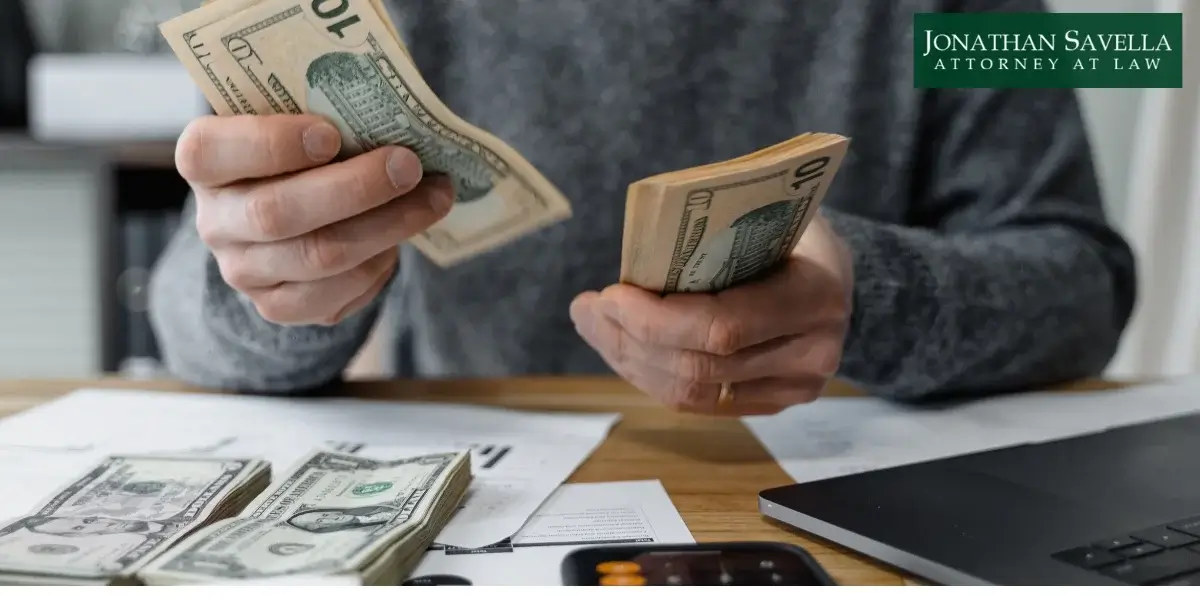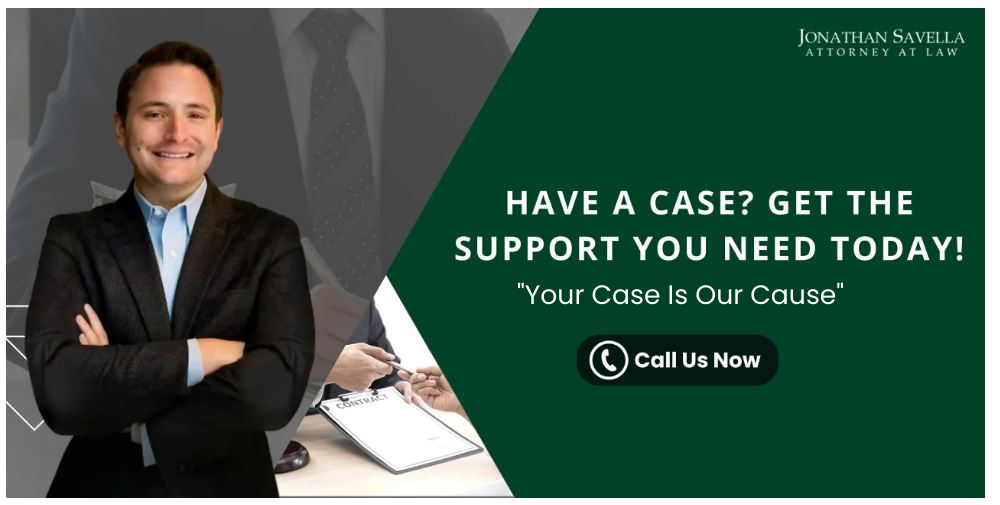NYC Federal Money Laundering Lawyer
Money Laundering Lawyer In NYC Federal
If you are accused of money laundering, time is of the essence. Prosecutors aggressively pursue money laundering cases, and chances are, if you have been charged, they are already building evidence against you. Having a NYC federal money laundering lawyer can help you understand the charges against you, know your legal options, and fight for your future.

Why Choose Us?
The Law Office of Jonathan Savella understands the severity of a federal money laundering charge. We understand federal law and can defend your case with the assertion and care that it needs. We know that each case is different, so we believe in giving each of our clients a tailor-made defense that is appropriate for their specific circumstances. We can look at your case and defend your rights so you can strive for a favorable outcome.
What Is Federal Money Laundering?
Money laundering is a federal crime that includes performing criminal activity and funneling it through other transactions and seemingly legitimate means, making it difficult to easily locate where the money came from. The origin is usually income from illegal activity, such as drug trafficking, embezzlement, fraud, or human trafficking. The goal is to make illegitimate money appear legitimate so it can be freely used without suspicion.
Federal money laundering generally falls under one of two categories:
- Federal code 18 U.S.C. § 1956 criminalizes financial transactions carried out with the goal of encouraging future illegal activity, concealing the origin of illicit funds, or avoiding transaction reporting requirements. It covers both local and foreign transactions. This is the most utilized statute.
- Federal code 18 U.S.C. § 1957 criminalizes knowingly engaging in financial transactions that involve more than $10,000 worth of property derived from criminal activity. Unfortunately, this statute does not require that the offender intended to commit the crime, only that the financial threshold was met.
Federal Money Laundering Examples
Money laundering schemes often involve multiple and complex layers of crime in NYC. Some examples of money laundering include:
- Structuring. This includes breaking up larger transactions into smaller ones (under the $10,000 threshold) to avoid detection and additional bank requirements.
- Using shell companies. This involves creating companies or accounts and using them to funnel illegal funds to make the money seem legitimate.
- Misrepresenting documents. This is commonly referred to as trade-based laundering, where an individual misrepresents invoices or goods to move international money to make it appear legal.
- Layering. Layering involves purchasing luxury goods or assets with illegitimate money and reselling them to make the transaction look legitimate.
Money laundering is typically paired with other crimes since the origin of the finances is usually illegal. This means that those charged with money laundering are likely to be charged with participation in additional crimes, such as drug trafficking, wire fraud, conspiracy, or tax evasion.
Unfortunately, you do not have to be accused of the criminal act, but simply being a part of it through handling or moving money can bring federal charges.
Money Laundering in the United States
The IRS Criminal Investigation Division (IRS-CI) opened over 2,676 criminal investigations in Fiscal Year 2023, uncovering over $37.1 billion in tax and financial crime, including money laundering. On cases that were accepted for prosecution, the division’s conviction rate was 88.4%.
Sixty-four thousand one hundred twenty-four cases were reported to the United States Sentencing Commission in fiscal year 2023. 1,132 of these involved money laundering.
How a Federal Money Laundering Attorney Can Help
If you or someone you know gets charged with federal money laundering in NYC, an attorney can be of invaluable help in your legal process. An attorney can evaluate your case, analyzing the government’s case against you to identify any weaknesses.
From that, they can create a legal strategy that is tailored to your specific circumstances. Before trial, they can negotiate on your behalf to try to reduce the charges and penalties against you. In court, they can advocate on your behalf during the trial. Overall, they can guide you through the process and offer advice on what to do every step of the way.
In New York City, federal money laundering cases are typically heard in the U.S. District Court for the Southern District of New York, located at 500 Pearl Street, or the Eastern District of New York, located at 225 Cadman Plaza East in Brooklyn.
FAQs About NYC Federal Money Laundering Law
What Is the Minimum Sentence for Federal Money Laundering In NYC?
Although there is no minimum sentence required by federal money laundering regulations, the U.S. Sentencing Guidelines serve as a reference for sentencing. There is no minimum penalty, but depending on the amount laundered, criminal history, and whether the laundering utilized advanced techniques or encouraged another crime, the punishments can range from probation to 20 years in prison.
What Evidence Is Needed for Money Laundering?
To prove money laundering, prosecutors must demonstrate that the defendant knowingly engaged in a financial transaction containing proceeds from illegal activity with the intent to promote or disguise the source of the funds. Bank records, wire transfers, emails, surveillance, co-conspirator testimony, and forensic accounting to track down money are examples of evidence.
How Long Does a Money Laundering Investigation Take In NYC?
Investigations into money laundering are difficult and may take several months or even years. The extent of the scheme, the number of people or companies engaged, and whether international jurisdictions are involved all affect how long it takes. Before charges are brought, investigations may start secretly and include audits, monitoring, and subpoenas.
Can You Get Probation for Money Laundering In NYC?
In some instances, you may be able to receive probation for money laundering, especially if the monetary amount is low, you have no criminal history, or you cooperate well with law enforcement. However, most of the time, those convicted receive prison time because the offense is usually very serious.
Contact NYC Federal Money Laundering Lawyer
Being accused of federal money laundering is a serious crime. However, if you are not convicted, you still have time to fight for your future. The Law Office of Jonathan Savella can help. Contact us today to get started.
About NYC and Federal Money Laundering Law: Courts, Enforcement & Updates
New York City is a key jurisdiction in the enforcement of federal money laundering laws, given its role as a global financial center and frequent site of large-scale financial crime investigations. Under 18 U.S.C. §§ 1956 and 1957, federal prosecutors in the Southern District of New York (SDNY) and Eastern District of New York (EDNY) routinely handle complex money laundering cases tied to wire fraud, drug trafficking, cryptocurrency, and foreign corruption. In 2024, the U.S. Department of Justice issued revised Asset Forfeiture Policy Guidelines, reinforcing the use of criminal and civil forfeiture in laundering cases.
The U.S. Treasury’s Financial Crimes Enforcement Network (FinCEN) also expanded beneficial ownership reporting requirements under the Corporate Transparency Act effective January 1, 2024, significantly impacting how shell companies are tracked in NYC and nationwide. Federal courts in NYC apply these laws aggressively, especially in SDNY, which is nationally recognized for prosecuting high-profile financial crimes involving international banking and money transfers.




